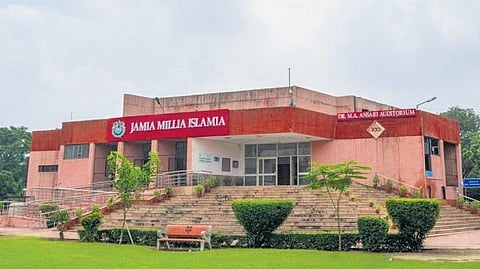

NEW DELHI: A recent change in Jamia Millia Islamia’s (JMI) PhD admission policy has raised concerns over a perceived weakening of its minority reservation mandate. The amendment, issued via a notification, now allows departments to optionally apply the 50% reservation for Muslim students rather than mandating it. The ordinance has been made public on the university’s website.
This has triggered concerns over the “dilution” of Jamia’s minority quota. The amendment, passed through a notification issued on November 12, 2024, modifies Ordinance 9 (IX) on PhD admissions by changing the language from “shall” to “may.”
The revised ordinance, available on the university’s website, states: “While granting admission to PhD programmes, the Faculty/Department/Centre may pay due attention to JMI’s reservation policy adopted for admissions.” Previously, the policy clearly mandated: “50 percent of the seats shall be reserved for Muslim candidates.”
The amendment was approved by Vice-Chancellor Professor Mazhar Asif on behalf of the Academic Council and the Executive Council, with Registrar Professor Md Mahtab Alam Rizvi signing the notification.
As a constitutionally protected minority institution, Jamia is entitled to reserve 50% of its seats for Muslim students under the National Commission for Minority Educational Institutions Act, 2004. However, the new amendment gives the administration the discretion to decide whether or not to implement the reservation.
The All India Students’ Association (AISA) has condemned the move, calling it a “deliberate attack on the rights of Muslim students.” In a press release on Friday, the student body stated, “Jamia Millia Islamia, a constitutionally protected minority institution, is legally bound to reserve 50% of its seats for Muslim students. However, the recent amendment has deliberately weakened this policy by making the reservation optional.”
AISA also presented data highlighting the alleged exclusion of Muslim candidates. According to figures shared by the student body, several departments have a significant number of vacant seats despite the availability of Muslim applicants. For instance, the Department of English has 17 vacant seats, despite admitting 15 non-Muslim candidates and only 12 Muslim students in the academic year 2024-25.
The students have demanded immediate corrective action, including the revocation of the amendment and the restoration of the binding 50% Muslim reservation policy.